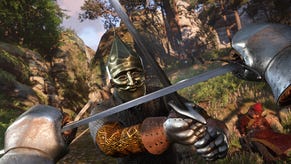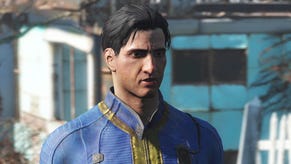Stormfront boss defends Wii's right to be called next-gen
Says we need to look beyond.
Stormfront Studios' Don Daglow has defended the Wii's right to be called a next-generation console during his GCDC speech in Germany this afternoon.
"I'm sure that somewhere in this little section of this room, there's somebody who does not believe the Wii is next-gen," he said.
"It does not have the processing power the 360 or the PS3 do, and you can make the consistent argument that, without that processing power, it can not revolutionise the entire experience. That's debateable, and we get to decide."
"Nobody gets to tell us what we think is next-gen - we get to decide for ourselves. I can help start arguing, but we get to decide for ourselves."
During a reflective one-hour session towards the end of GCDC's first day, Daglow, president and CEO of Stormfront, also encouraged his fellow developers to look beyond the traditional definition of "next generation".
"Next-gen hardware is any platform that, upon its introduction, dramatically changes players' view of the potential for interactive entertainment," he said, before arguing that it's a definition that fits software as well.
"If it changes the player's view of what interactive entertainment is; if you think differently about it; if you have a new perspective after playing the game that you didn't have before, to me that's next-gen," he told the audience.
To support that point of view, Daglow put forward a range of games that had shifted perspectives and proven influential in hindsight - games like Sim City, Guitar Hero, Geometry Wars and World of Warcraft.
The veteran developer - whose career has also encompassed spells at Intellivision, Broderbund and EA - devoted the early part of his session to examining the cyclical nature of console cycles. He spoke of the way developers' appreciation of the hardware matures each time, how certain types of game and certain types of consumer form noticeable patterns, and how people - developers, press and public - tend to react to consoles in distinct ways at each point.
"We've spent a quarter of a century saying 'the machine is holding me back'," he said to begin. "The only problem is that now the machines are so powerful, we've lost our excuse."
"So we've thought about this for a while as game designers - and decided we're going to blame the finance guys," he joked.
Echoing sentiments expressed in Julian Eggebrecht's keynote at the top of the event, he finished by imploring the developers in the audience, to whom he paid tribute, to continue pressing forward. "That search for next-gen is what inspires us to keep trying to change and create new things, has us seeking to dramatically change people's views of what this medium can do."
"As a game player, the one thing I want to ask you is never to give up," he said. "There is always a next-gen available tomorrow."








